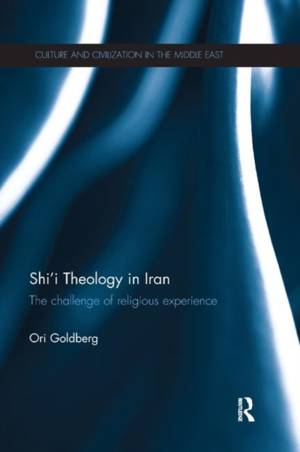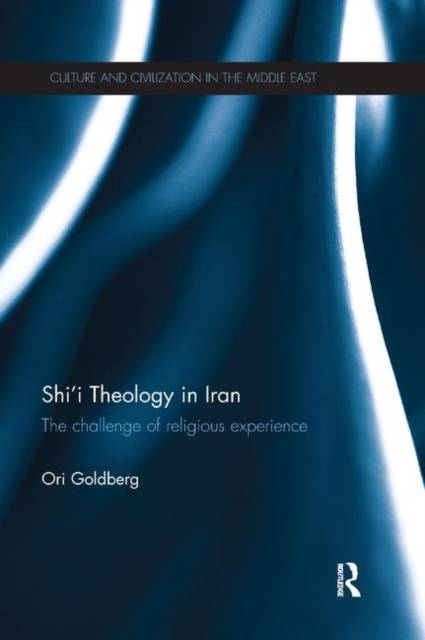
- Afhalen na 1 uur in een winkel met voorraad
- Gratis thuislevering in België vanaf € 30
- Ruim aanbod met 7 miljoen producten
- Afhalen na 1 uur in een winkel met voorraad
- Gratis thuislevering in België vanaf € 30
- Ruim aanbod met 7 miljoen producten
Omschrijving
Taking a theologically oriented method for engaging with historical and cultural phenomena, this book explores the challenge, offered by revolutionary Shi'i theology in Iran, to Western conventions on theology, revolution and religion's role in the creation of identity.
Offering a stringent critique of current literature on political Islam and on Iran's 1979 Islamic Revolution, the author suggests that current literature fails to perceive and engage with the revolution and its thought as religious phenomena. Grounded in the experience of unconditional faith in God, Shi'i thinkers recognize a distinction between the human and the divine. Concerned with the challenge of constructing a virtuous society, these thinkers pose a model of authority and morality based on mediation, interpretation and participation in the experience of faith. Ori Goldberg considers this interpretative model utilizing a broad array of theoretical tools, most notably critical theologies drawn from Jewish and Christian thought. He draws on a close reading of several texts written by prominent Iranian Shi'i thinkers between 1940 and 2000, most of which are translated into English for the first time, to reveal a vibrant, complex discourse.
Presenting a new interfaith perspective on a subject usually considered beyond the scope of such research, this book will be an important reference for scholars of Iranian studies, political Islam, theology and cultural studies.
Specificaties
Betrokkenen
- Auteur(s):
- Uitgeverij:
Inhoud
- Aantal bladzijden:
- 224
- Taal:
- Engels
- Reeks:
Eigenschappen
- Productcode (EAN):
- 9780367866402
- Verschijningsdatum:
- 12/12/2019
- Uitvoering:
- Paperback
- Formaat:
- Trade paperback (VS)
- Afmetingen:
- 156 mm x 233 mm
- Gewicht:
- 409 g

Alleen bij Standaard Boekhandel
Beoordelingen
We publiceren alleen reviews die voldoen aan de voorwaarden voor reviews. Bekijk onze voorwaarden voor reviews.











